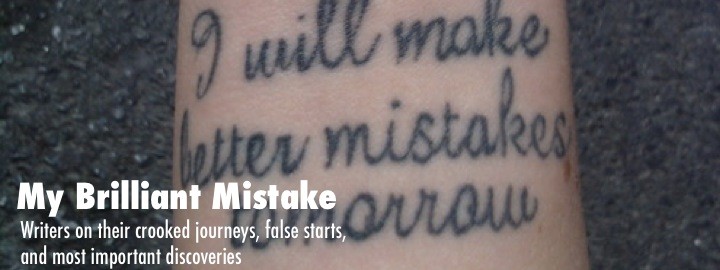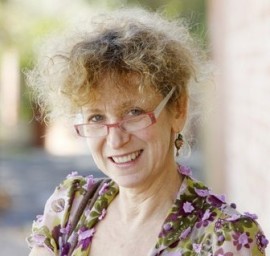MBM recently interviewed Australian novelist, creative nonfiction writer, and physician Leah Kaminsky over at R.kv.r.y Quarterly about her new short story “Keep Smiling Mary K”, and I got to ask her about a particular piece of advice that shaped her writing career. Here’s an excerpt of the interview:
My Brilliant Mistake: Leah, I’ve had the great pleasure both of reading a draft of your nearly completed novel, about a terrible day in the life of an Australian physician living in Israel. I’ve also heard you speak in public about “pain in literature.” In your short story, Keep Smiling Mary K, the voice of a TV aerobics instructor wants to be helping viewers. What is it about the uses (or abuses) of health professionals that interests you?
Leah Kaminsky: Health professionals, like the fitness instructor in this story, can be proscriptive and reductionist in their approach to illness and well being. If you don’t listen to the narratives behind a patient’s concerns, you cannot hope to empathize or help in any meaningful way. You risk coming into the consultation with a preformed idea of how to conduct the interview and have the patient’s symptoms fit into a certain pro-forma.
Language is the first thing to be lost when it comes to pain and often you need to look for non-verbal clues. This is equally important when it comes to helping a patient express physical or emotional pain. Literature often uses fresh metaphors and narrative to help give voice and expression to pain. The truth is often in the subtext of what’s being said inside the consultation room.
My Brilliant Mistake: I’m launching a new blog where I interview writers on their most important mistakes. You get to be my inaugural interview. Can you tell me about a particular mistake that led to an important insight, approach, or subject matter? A mistake that had a big positive impact on the way you approach your writing?
Leah Kaminsky: Soon after I met my husband he introduced me to Israeli author David Grossman. We met in a café in Jerusalem and I told him I was nervous about moving to Israel because I was a writer and didn’t know any Hebrew. I asked him if I was making a career mistake. He told me there is no better place on earth for a writer to live – you just need to step outside your front door and there is always a story waiting there for you.
What I didn’t know then is that for the next ten years my writing career would be on hold, even though I’d learn the language, work and bring up children in Israel. But I couldn’t write creatively in Hebrew and there were very few opportunities to publish in English there – I think it was even frowned upon as a sign of not wanting to integrate into Israeli society in those days. I kept a journal all that time, but really thought my career as a writer was over.
When I moved back to Australia with my family after ten years, the words started to flow again and the experiences of living in Israel deeply informed my writing. David Grossman had been right about what he said; perhaps he wasn’t aware that the opportunities for writers in English when I lived there were narrow. At the time I thought moving to Israel would mean I could no longer be a professional writer, but I can see now how it fueled my muse in so many ways. Was it a mistake? No. I wouldn’t be the writer I am now if I hadn’t lived in such an edgy and colorful place for so long.
Read the rest of the interview or learn more about Leah Kaminsky and her wonderful work as guest editor of Creative Nonfiction magazine’s Australia (Fall 2012) issue.

